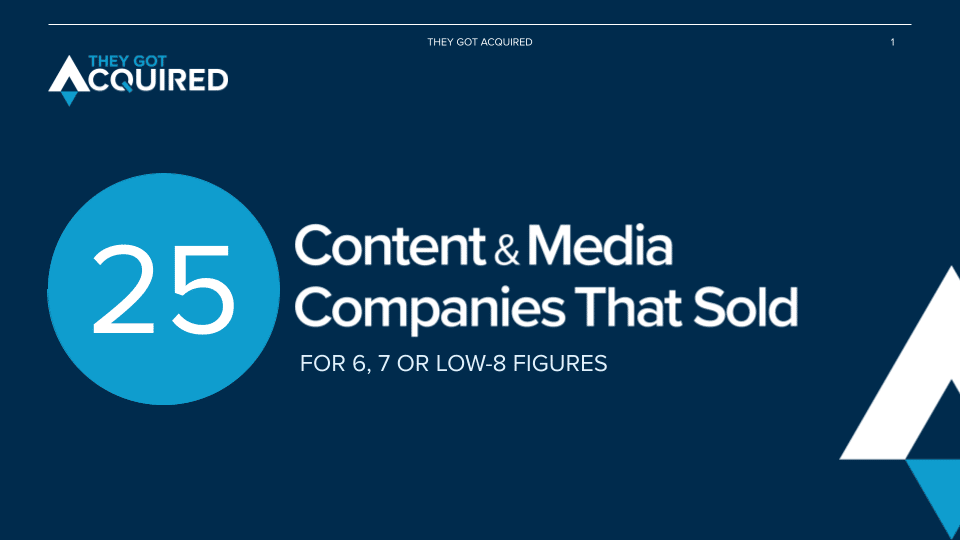Talia Koren doesn’t sugarcoat it: “Selling my business was the hardest thing I’ve ever done in my life.”
Koren founded Workweek Lunch in June 2016. The blog and subscription product helped people meal prep with weekly plans, original recipes, a private community and other tools.
But in 2021, Koren hit a wall and was ready to move on.
She reached out to a broker who gave her an unofficial valuation of about $800,000. Instead of selling, she took it as a challenge — she wanted to double the valuation.
That, she shared on her blog, was a mistake.
She turned her “healthy girl” reputation into Workweek Lunch
After graduating Ithaca College with a degree in cinema and photography, Koren worked several 9-to-5 office jobs in New York City. To save money and eat healthy, she meal-prepped.
“I was pegged as the ‘healthy girl’ because I consistently brought my own lunches to work,” she told Authority Magazine. “At first, my coworkers made fun of me, but then they started asking questions about how I cooked and brought such appetizing lunches to work week after week.”
In 2016, Koren got laid off from her job as a journalist, she shared on her blog, so she began freelancing and food blogging. She helped brands with Instagram growth, content strategy and copywriting, and influencer marketing and outreach consulting.
During this time, she took an online course that taught her how to start an online business.
“[I] decided my topic for my online business would be teaching others how to meal prep lunches for work, a skill I already had that my peers didn’t,” she told Authority Magazine.
She launched Workweek Lunch, where she shared meal plans, cooking tips, recipes and more. Some of her most popular recipes included veggie mac and cheese, General Tso’s chicken and Thai coconut curry soup.
For the first 15 months, Koren focused on growing her audience through blogging and Instagram.
“I didn’t even think about developing my first product until I had over 1,000 people on my email list and 10,000 followers on Instagram,” she shared with Authority Magazine.
Building a subscription product that attracted 25K+ customers
In February 2018, Koren launched an eight-week accountability meal prep group for $197, she shared in a blog post. This included a weekly meal prep plan and a weekly accountability meeting.
“The price was too high, and the offer wasn’t good enough,” she wrote. “Only 17 people signed up and three ended up quitting.”
Later in June, Koren tried again, launching the Workweek Lunch Meal Prep Program, which included affordable weekly meal plans and recipes. By the end of the year, it had more than 1,000 members.
The subscription program would drive the majority of Workweek Lunch’s revenue. Prices and plan structures varied slightly through the years, but at sale, members could choose from four tiers: WWL Basic Monthly for $9 a month, WWL Basic Yearly for $99 a year, WWL Pro Monthly for $12 a month and WWL Pro Yearly for $199 a year — all with a seven-day free trial.
The basic plans included access to 650+ recipes for vegans, vegetarians, omnivores, and gluten-free and dairy-free eaters. Recipes ranged from breakfast to lunch to dinner and each included produce, carbs and protein. Most only took 45 minutes to throw together with basic kitchen tools. Each week, Workweek Lunch sent new digital meal plans with two to four new recipes included.
The program also included a weekly meal plan and grocery list and access to Workweek Lunch’s private Facebook group, which grew to 7,000 members. Pro plans included everything from basic — plus a custom meal planner, grocery list maker and meal plan archives.
Koren told us her biggest challenge was nailing down a sustainable content model.
“At first, I was doing it all alone and working nonstop, focusing on getting new recipes and a new meal plan out every week,” she said. “Over time, and as I grew a team, we figured out how to do more with less content, while still providing the same value to customers.”
Workweek Lunch grew to two full-time employees, one part-time employee and five contractors.
Ultimately, Workweek Lunch would hit around $2 million in lifetime revenue (over seven years) with 4,000 active customers and more than 25,000 lifetime, Koren shared with us. Monthly website visitors topped 100,000 and email subscribers hit 35,000. On social channels, the brand had attracted nearly 500,000 Instagram followers and 22,000 TikTok followers.
Everything seemed great — Koren even released the “The Workweek Lunch Cookbook” in 2021 — but behind the scenes, she “experienced significant burnout and a growing desire to move on from Workweek Lunch,” she wrote on her blog.
When a well-known food blogger shared that she’d just sold her business, Koren starting thinking…
Making moves: Deciding to sell Workweek Lunch
In 2021, Koren reached out to Quiet Light, a business broker, and got an unofficial valuation.
“I didn’t know it at the time, but the unofficial valuation was so good!” Koren wrote on her blog. “At that point, business was going well, with steady growth and success. In hindsight, that was the ideal moment to seriously consider selling.”
Instead, she set out to continue to grow Workweek Lunch — to double its valuation — but she soon hit several unexpected roadblocks, including a major shift in Instagram’s algorithm that negatively affected the business.
“This shift completely tanked our reach to new people and potential customers,” Koren wrote. “Going from creating photograph-based content to video content was a huge [undertaking] for me, and I was slow to pick it up. Even after two years of creating food video content, I can’t say I ever found my groove with a sustainable format and formula I liked.”
After wavering back and forth on her decision to sell, Koren listed Workweek Lunch for sale in January 2023 through Quiet Light — but that was only the first step.
On finding a buyer: “There are so many things I’m going to do differently next time”
Selling Workweek Lunch wreaked havoc on Koren’s physical and mental health.
“I’ve never experienced the level of anxiety in any other situation I’ve encountered,” she said.
Her main source of anxiety was not telling her team — two employees and one contractor who she let go before the sale — about her plans.
“I felt very dishonest and out of alignment,” she said. “I felt like I was pretending at work and putting on a show when, in reality, all I wanted to do was leave the company and move on.”
Through Quiet Light, she received three letters of intent. Once she selected a preferred buyer, they began the due diligence process.
“My anxiety was at its worst during this stage,” she shared on her blog. “Not only did I have to handle a buyer discreetly poking around my company, but I also had to run things as normal and keep the biz afloat.”
The process took up to two months, and in the end, the interested buyers retracted their offers because of a downward trend in the business, which Koren said was at least in part attributed to her burnout.
Koren had a 90-day exclusivity contract with Quiet Light. Soon, it ran out, and she hadn’t landed a buyer. Because Workweek Lunch was no longer under due diligence, she decided to call her employees and let them go. At this point, the company wasn’t making enough money to support them, and Koren didn’t pay herself at all in 2023.
“I told them on the phone, and they were understandably shocked and upset,” she told They Got Acquired. “I shared with them the entire story of what had been going on behind the scenes at that point. They wrapped up their work, we had a send-off video call and that was that. It was probably the hardest thing I’ve ever done in my career so far. I don’t think I’ll hire employees in my next business.”
Selling Workweek Lunch — for less than half the initial valuation
After that, in what she calls a last-ditch effort, she posted in a Facebook group for food bloggers. There, she connected with another member of the meal-prep community — and her buyer — Meal Prep on Fleek.
Although Koren enjoyed working with a broker, she told us she’s glad she did the deal herself.
“I wanted more control of the price and deal structure,” she said. “The business was in decline, and since 90 days went by without a sale, it was in worse shape than when we started, and I wanted to sell quickly before things got even worse.”
In May 2023, Koren officially sold Workweek Lunch for a low-6-figure sum — a “pretty low multiple” since it was in decline. She told us it was less than half of that initial unofficial valuation she had received in 2021.
Although the process wasn’t easy, “I’m glad I had this experience,” she shared.
Her No. 1 piece of advice for sellers is simple: Don’t wait to sell.
“Do it sooner than later, even when — especially when — things are going well,” she said. “Don’t put your biz up for sale ahead of its worst quarter of the year (my mistake).”
As part of the deal, Koren spent two months training the buyer and his team on all aspects of Workweek Lunch. After a Hawaii vacation, she planned to take two months off before diving into her new venture, a podcast called “Dating Intentionally.”
This post contains an affiliate link from one of our partners. If you engage them through our link, The Got Acquired may receive a commission at no extra cost to you



